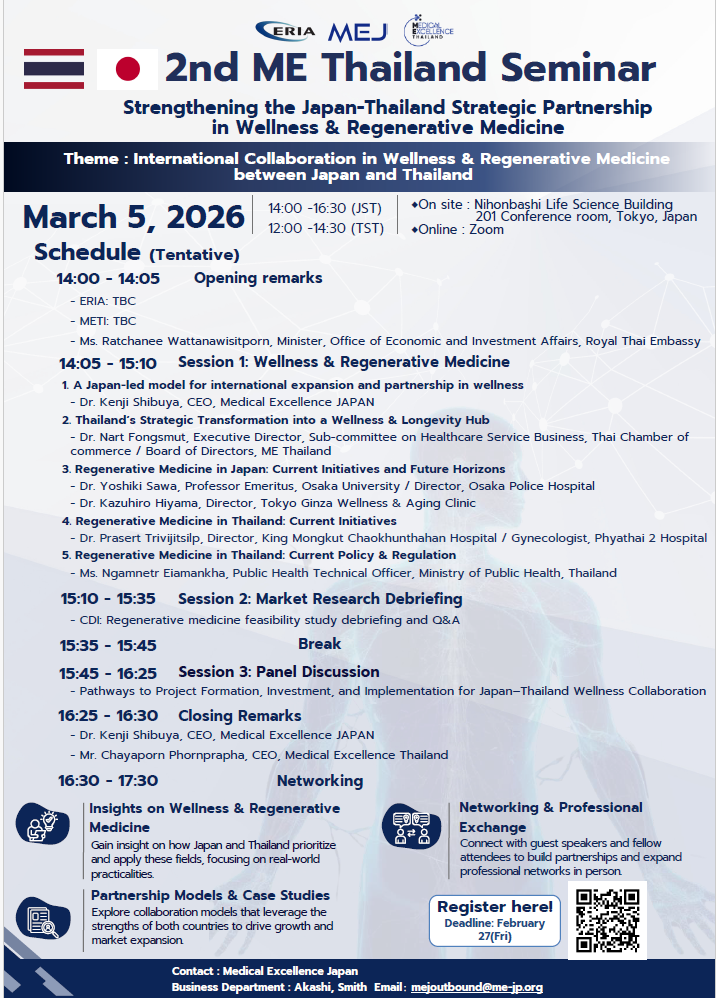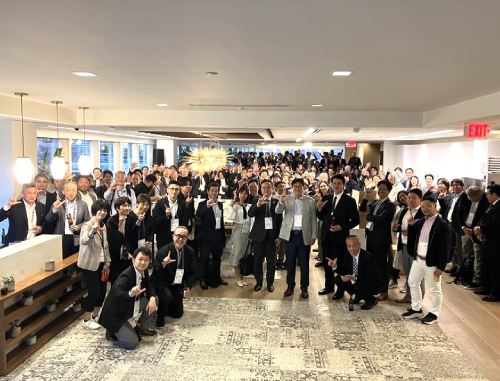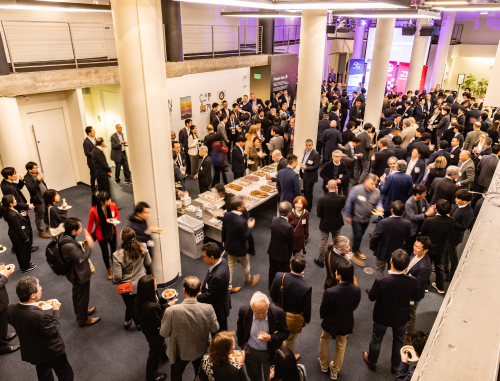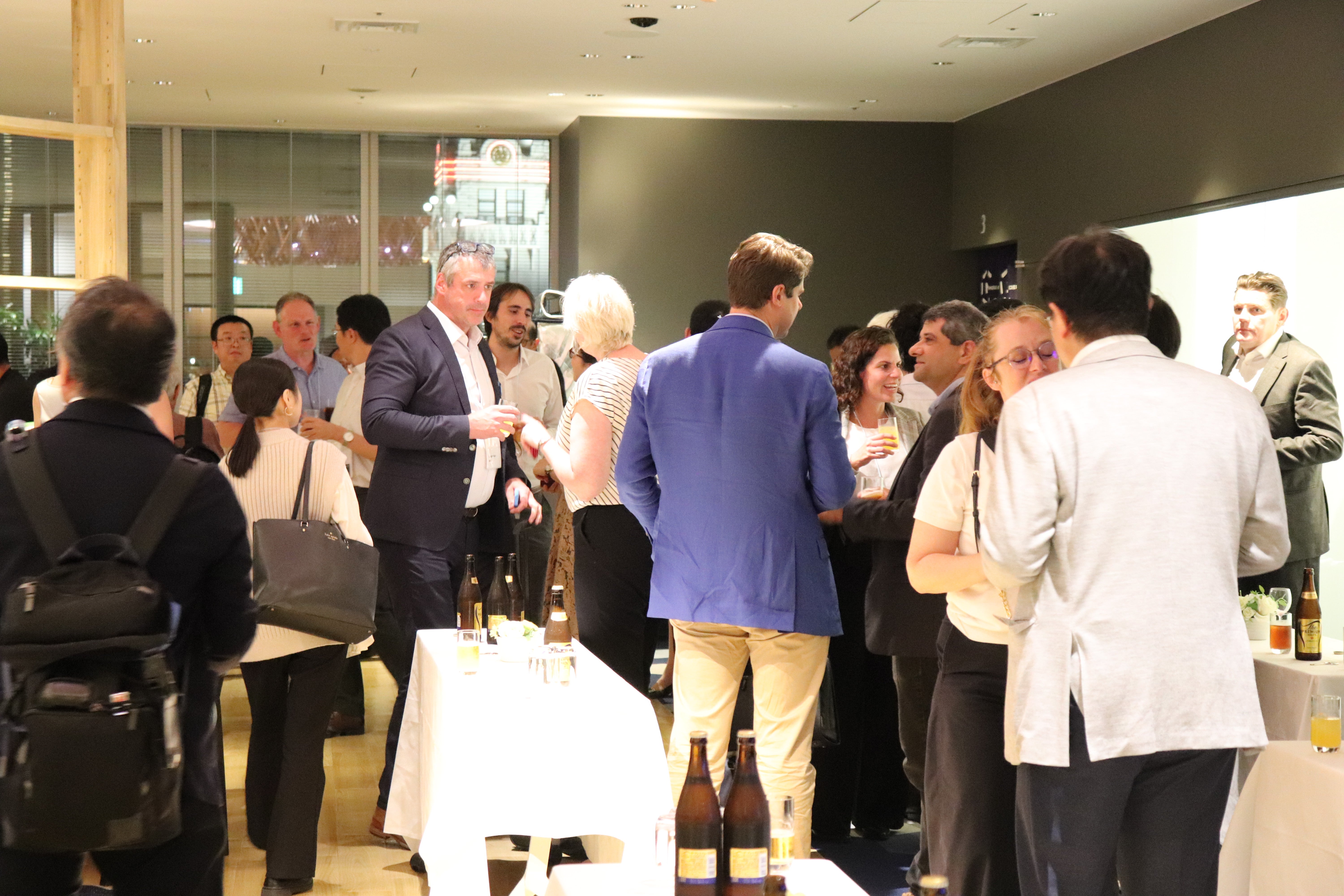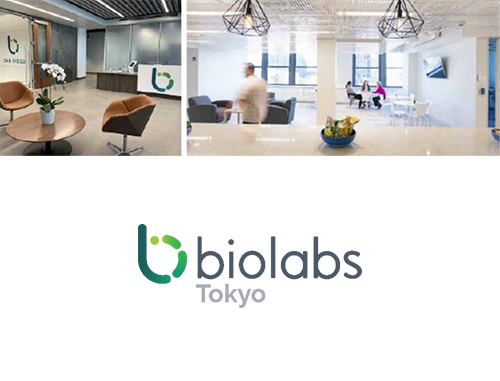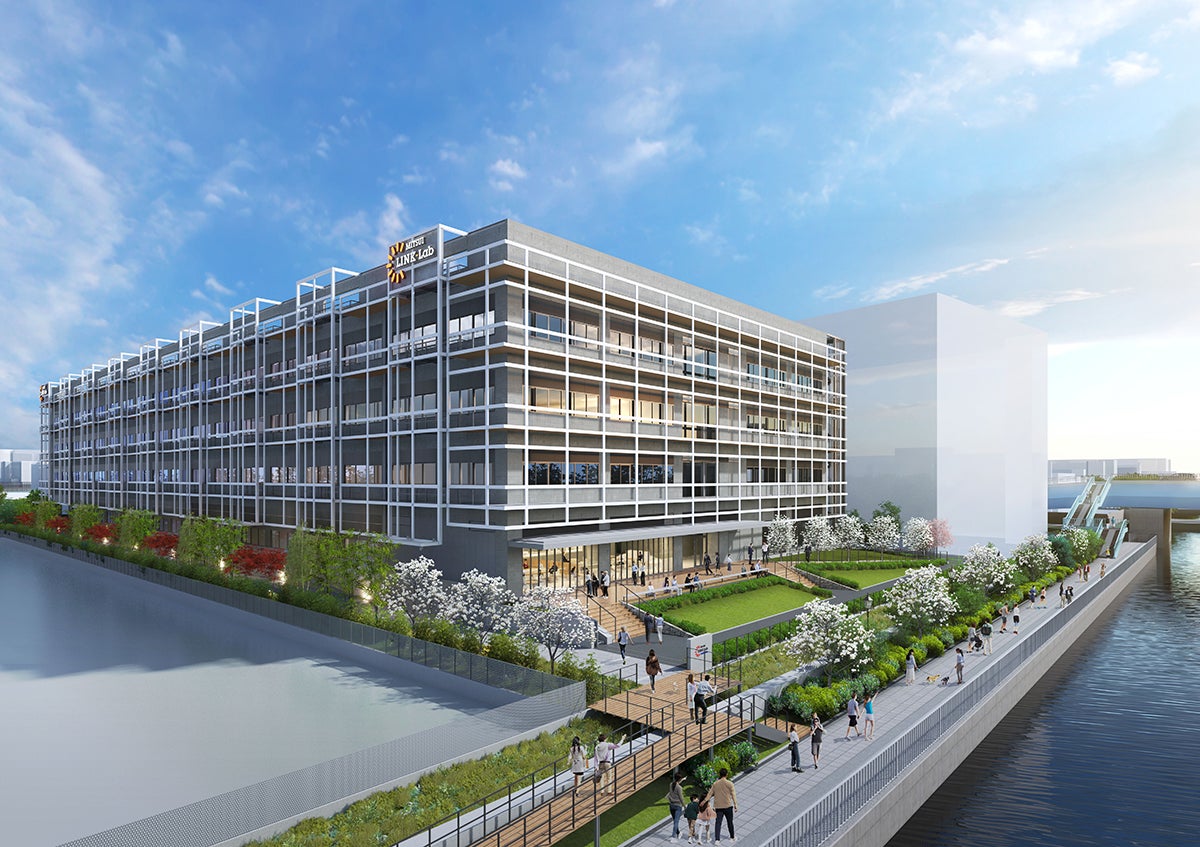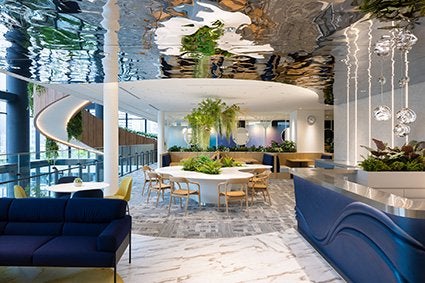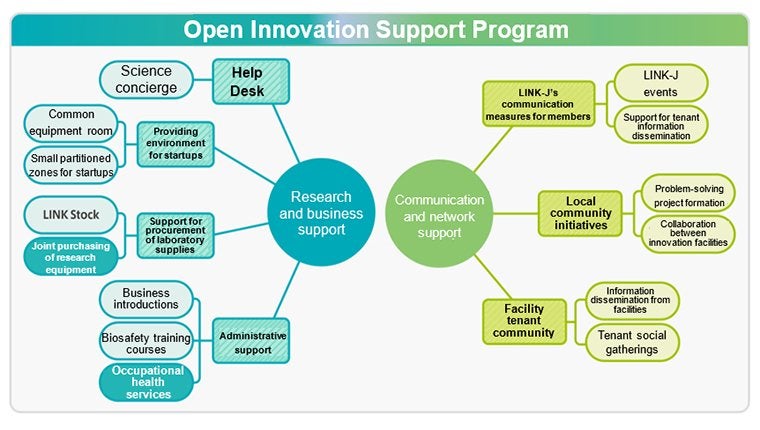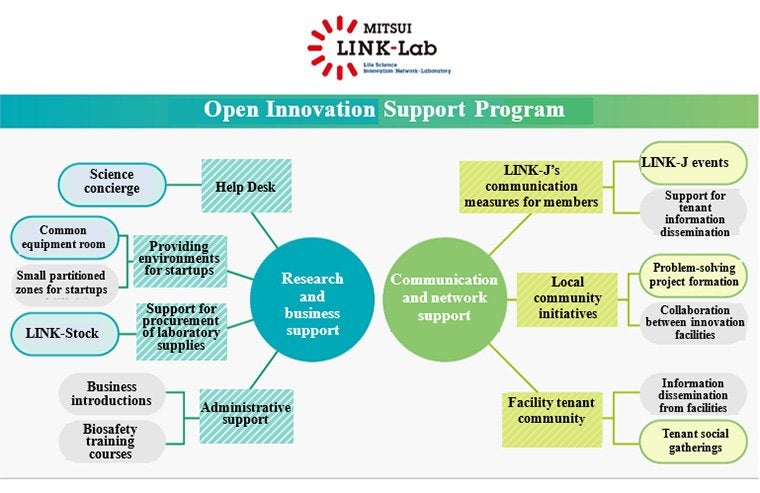Life Science Innovation Network Japan, which is based in Nihonbashi, Tokyo and Osaka, and promoting human and technical exchanges in the life science field, and supports the commercialization of seeds and ideas (Headquarters: Nihonbashi Muromachi, Chuo-ku, Tokyo; Chairman: Hideyuki Okano; hereinafter referred to as "LINK-J"), celebrated the opening of the LINK-J Meeting Room (Hereinafter referred to as "meeting room") on September 23 in the newly established Franklin Antonio Hall (hereinafter "FAH") in the UC San Diego campus. The named meeting room recognizes the LINK-J investment in the Engineering Vision for the Digital Future at the UC San Diego Jacobs School of Engineering.
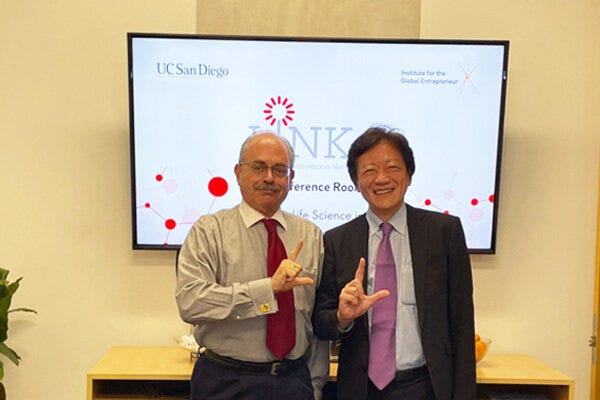
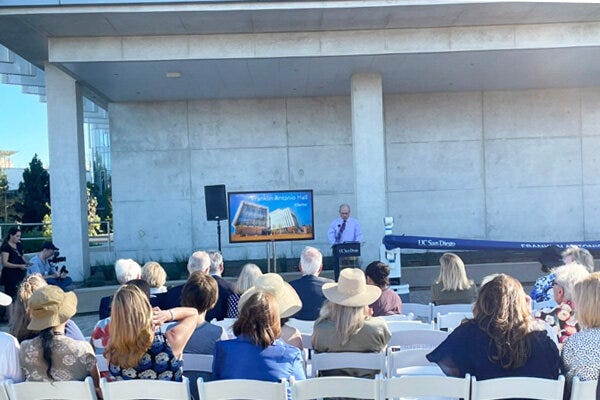
(Right photo) FAH Grand Opening
The meeting room is large enough to accommodate 6 to 8 people. The conference room is usually used by UC San Diego researchers, faculty members, students and other innovators working within FAH. By making a reservation, LINK-J members visiting UC San Diego can also use it. As a result, it is expected that this will promote joint research, academic exchange and education between UC San Diego and LINK-J members. With the establishment of a named conference room、It will be easier for LINK-J members to participate in the FAH's entrepreneurship support program, Institute for the Global Entrepreneur (IGE).
FAH is a facility that promotes medical-engineering collaboration programs led by Dean Albert Pisano of the UC San Diego Jacobs School of Engineering. It consists of auditoriums, classrooms, laboratories, and collaboration space, and is intentionally designed to encourage collaboration between researchers from different departments. It is a four-story building with a total floor area of approximately 200,000 gross-square-feet. The meeting room is in the entrepreneurial center located on the first floor.
The University of California San Diego (UC San Diego) and LINK-J signed a memorandum of understanding (MOU) for collaboration in the field of life sciences in May 2016 (updated with the same details in May 2021) and have co-sponsored a series of special seminars to invite prominent researchers from UC San Diego to Japan, and online joint webinars. This time, the LINK-J Meeting Room will be opened in time with the grand opening of FAH and the collaboration will be furtherly strengthened.
As for the opening of the conference room, Dean Albert Pisano of the UC San Diego Jacobs School of Engineering said: "I am so pleased that our long-term partner, LINK-J, has invested in the Jacobs School's vision for the Digital Future. I'm thrilled that this partnership is being recognized by sponsored a conference room in the entrepreneurial center of Franklin Antonio Hall. LINK-J is perfectly positioned to collaborate with some of the most productive life science researchers working with the Jacobs School of Engineering."
Akihiko Soyama, President and CEO of LINK-J, said I am very pleased that LINK-J's named facility is on the campus of UC San Diego, with which we have had a close relationship since the establishment of LINK-J. In addition, because the meeting room was set up in the newly established Franklin Antonio Hall led by Dean Pisano, who has provided a great deal of support to LINK-J, we will further deepen exchanges between UC San Diego and LINK-J and LINK-J members, share and enhance each other's knowledge, and contribute to the development of the life science industry.
LINK-J will continue to stimulate the creation of life science innovations, contribute to the advancement of life science industries, and assist in the resolving of life science-related issues for people around the world.
About Life Science Innovation Network Japan (LINK-J)
LINK-J is an NPO established mainly by Mitsui Fudosan Co., Ltd. and volunteers from industry and academia. Based in the Nihonbashi area of Tokyo, where pharmaceutical-related companies are concentrated, it aims to promote open innovation in the life science field through industry-government-academia collaboration and support the creation of new industries. We will promote cross-disciplinary human and technological exchanges in the life science field, which is a complex area of all sciences, including medicine, science and engineering, and new technologies such as ICT and artificial intelligence.
